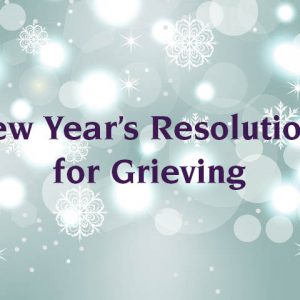 by Jennifer Messelt, LMSW, LGSW
by Jennifer Messelt, LMSW, LGSW
“I know exactly how you feel.”
In the nearly 13 years I have worked as a bereavement specialist, I have learned this is one of most unwelcome phrases heard by those who have experienced the death of a loved one. No matter how similar two losses may seem, no two deaths are exactly the same. With grief comes a multitude of feelings, and with those feelings come individuals who experience them in their own unique ways.
“Are you still grieving?” is another unwelcome, but frequently asked question of grievers. In my work as a bereavement specialist, I’ve been asked to speak to groups as young as 5 years old. After explaining to them what grief is, I will often ask if they know how long grief lasts. Many hands will go up in the air and the responses will vary from “one day” to “one month” to “one year” and so forth. Eventually, someone will give the correct answer—forever. That’s right. Grief lasts a lifetime.
The intensity of grief will not always be as strong. It will continue to lessen as time goes on. So to ask a grieving person, “Are you still grieving?” is not only unwelcome, it can also cause that person to feel as though something is wrong with them because they are still grieving. In fact, that person may grieve for many years to come.
Our loved ones will always be remembered and hold a special place in our hearts. Saying well-meaning things such as, “It’s God’s will,” “She’s in a better place,” “It’s for the best,” or “It’s a blessing” are often not interpreted as well-meaning by the griever.
I remember attending my father’s funeral and well-meaning people made comments like these, intending to console me. It made me think, “How can this be a blessing? I don’t have my Dad anymore. Why would God want to take him from us? I want him here with us!”
Many bereavement clients say one of the most hurtful things they experience in their time of grief is when friends/acquaintances avoid them in their time of deepest need. They will often acknowledge these friends/acquaintances are likely uncomfortable with grief, but it still does not take away the pain a grieving person feels. It adds to their pain.
Instead of avoiding people who are grieving, be specific in offers to help. This could be offering to bring dinner on a certain day or offering to mow their lawn/shovel snow.
Instead of saying, “Let me know what I can do to help,” say, “I would like to bring dinner over tomorrow night … would that be OK?”
This allows a grieving person to simply answer your offer versus having to ask for something they may or may not even know they need.
A welcome and helpful phrase you can share with someone who is grieving is, “I’m here for you if you would like to talk.” Being an active listener is one of the best gifts you can give to a grieving person. Ask those who are grieving to tell you about their deceased loved one. In this way, you are letting the grieving person know you are ok with his or her grief and won’t judge if he or she wants to talk about the loved one.
Speaking the deceased person’s name is also something so simple, yet so powerful to the grieving person. It has been 22 years since my father died; I still crave hearing someone mention his name. And better yet, to hear someone mention his name along with a happy memory of him. Just for a brief moment, it is as though he has come alive again through the memory shared. Another way of sharing a special memory might be by adding a personal note of a memory in the sympathy card.
Lastly, remembering a grieving a person on special days (wedding anniversaries, anniversary of the death, birthdays, holidays) can mean a lot to the grieving person, as it is likely the rest of the world has sent him or her the message that it is time to “Get over it already.” Your card may be just the breath of fresh air needed.
For more information about Hospice of the Red River Valley’s free community grief support program, please visit our website or call 800-237-4629 and ask for the bereavement department.
Jennifer Messelt is a grief specialist with Hospice of the Red River Valley.
About Hospice of the Red River Valley
In 1981, Hospice of the Red River Valley was founded on the belief that everyone deserves access to high-quality end-of-life care. We fulfill our nonprofit mission by providing medical, emotional, personal and spiritual care, as well as grief support to our patients, their families and caregivers during a tender time in life. Our staff helps those we serve experience more meaningful moments through exceptional hospice care, 24 hours a day, 365 days a year, wherever a patient calls home. The organization serves more than 40,000 square miles in North Dakota and Minnesota, including in and around Bismarck, Detroit Lakes, Devils Lake, Fargo, Fergus Falls, Grand Forks, Lisbon, Thief River Falls, Valley City and many more communities. Hospice of the Red River Valley offers round-the-clock availability via phone, prompt response times and same-day admissions, including evenings, weekends and holidays. Contact us anytime at 800-237-4629 or hrrv.org.




